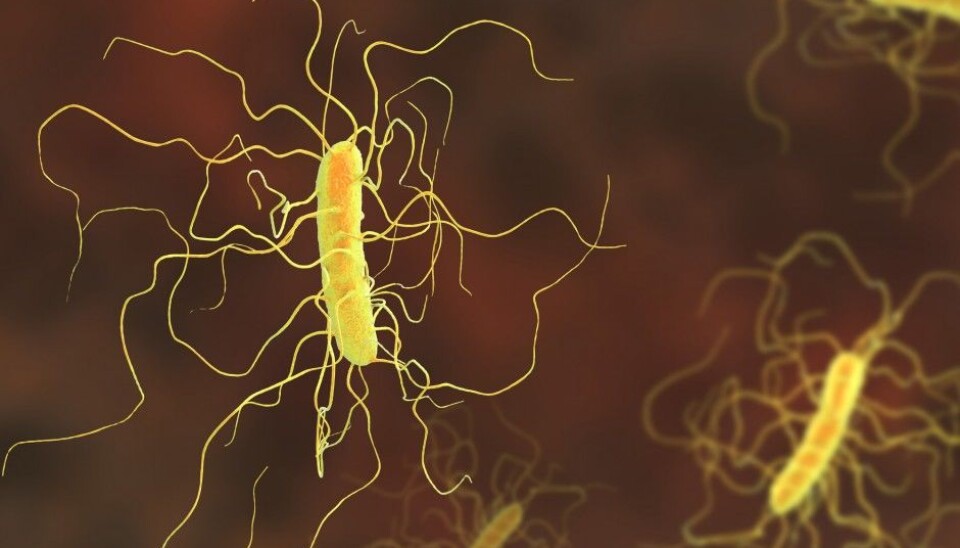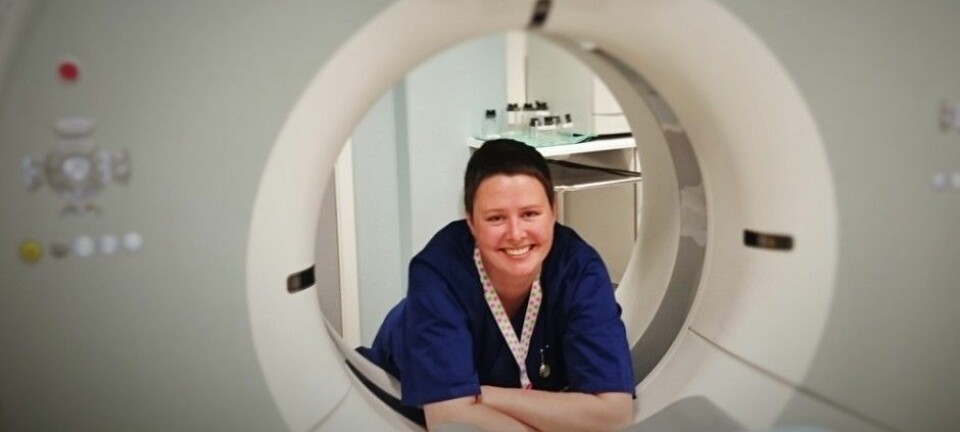
Intestinal bacteria can work better than antibiotics
A small Norwegian study suggests that transplanted bowel bacteria may be more effective than antibiotics in treating patients with severe bowel infections.
The bacterium Clostridium difficile’s name gives you a hint of how hard this intestinal organism can be on the body — and how extremely difficult it can be to control.
The infection usually occurs after treatment with a broad-spectrum antibiotic and can lead to severe diarrhoea and fever. In most people, the problem goes away on its own, but some people are unable to shake the infection.
The elderly and those who are ill or with weakened immune systems are more likely to end up with chronic diarrhoea caused by the bug, which in turn makes them even weaker.
Patients who have a chronic infection with C. difficile are typically treated with additional antibiotics. But in some cases this treatment is not successful. At worst, Clostridium difficile can kill the patient. An estimated 14,000 Americans die every year from the bacterium, according to statistics from the Oslo University Hospital.
However, there is one last possibility.
Bowel bacteria to the rescue
Some patients have benefitted from faecal transplantation, the transfer of healthy intestinal flora from another human being. For decades, doctors have used this as a last-ditch effort for patients with recurrent infection. This approach worked well and can save lives.
But that raises the question: Does faecal transplantation have to be the last resort? Or might it be better to use this treatment right away without trying antibiotics first?
Now, Michael Bretthauer at the University of Oslo and researchers from Oslo University Hospital and a range of Norwegian and Scandinavian hospitals have tested this approach on patients with primary C. difficile infection. The researchers compared treatment with antibiotics and faecal transplantation.
The results were recently published as a letter in The New England Journal of Medicine (NEJM).
Most patients improved after faecal transplantation
Eleven patients received standard treatment with an antibiotic called metronidazole, while nine patients were given a transplanted bacterial culture based on human intestinal flora, the researchers wrote in NEJM.
After four days, five of the patients in both groups were healthy. Those who were not responding received an additional treatment with antibiotics at this time. The researchers then evaluated participants after 35 and 70 days.
After 70 days, no additional patients in the metronidazole group had become healthy. They had either a persistent C. difficile infection or it had flared up again. This meant that six patients — more than half of the group — were still ill.
In the transplant group, however, an additional two patients had improved. That means that after 70 days, seven out of nine patients who had been treated with faecal transplantation had been rid of the intestinal infection. Only two remained ill.
Larger study to follow
This was a small study with only a few patients. More and larger studies will be needed to determine whether faecal transplantation actually works better for patients with C. difficile infection than the usual treatment with antibiotics.
But the results suggest that faecal transplantation may be an alternative to antibiotic treatment for patients who are afflicted with the intestinal infection, the researchers wrote.
They report that a major study is now under way.
Should the results of the small study prove to be true, it is good news in two ways. It means better treatment for patients with a C. difficile infection. And secondly, it means less use of antibiotics, which lowers the overall risk of antibiotic resistance.
Reference:
Frederik E. Juul et al., Fecal Microbiota Transplant for Primary Clostridial difficile Infection, NEJM, June 2018.
-------------------------------------
Read the Norwegian version of this article at forskning.no.
































